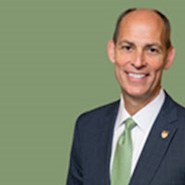
By Mona Savino & Thomas Smith, III
Situation
An engineer was employed as the director of a city's department of wastewater management. Investigated by the Federal Bureau of Investigation (FBI) for devising a scheme to obtain campaign contributions from an engineering firm, he ultimately resigned from his position and pleaded guilty to postal and wire fraud. He was sentenced to 18 months in prison, to be followed by two years of probation, and was fined $4,000.
The engineer devised a scheme through which he would give the firm he worked for before being employed by the city a contract with the city in exchange for campaign contributions. He then advised the firm that it could increase its billing rates to cover the amount of the donations. The engineer claimed that he told the mayor's executive assistant that the firm could not be expected to make a big contribution until it received a city contract. The firm reported him to the FBI and cooperated with the investigation.
Question
Did the engineer violate ASCE's Code of Ethics by agreeing to give city work to an engineering firm in exchange for campaign contributions?
The guidelines for practice set forth in the code for category (a) of canon 5 read as follows: "Engineers shall not give, solicit, or receive, either directly or indirectly, any political contribution, gratuity, or unlawful consideration in order to secure work, exclusive of securing salaried positions through employment agencies." According to canon 6 of the code, "Engineers shall act in such a manner as to uphold and enhance the honor, integrity, and dignity of the engineering profession."
Discussion
ASCE's Committee on Professional Conduct (CPC) concluded that the engineer violated these canons by soliciting campaign contributions in exchange for a city contract. It then forwarded the case to the Executive Committee of the Board of Direction. The issues before that committee were whether the member had violated the code and, if so, what sanctions were in order.
Facing potential expulsion, the member decided to resign from the Society rather than have his case go before the Executive Committee. This course of action is covered by the Society's bylaws and its rules of policy and procedure.
As set forth in subsection 3.2.3 of the bylaws, "A Society member who has been advised by the Society that it is investigating the Society member's possible involvement in activities for which the Society member could be subjected to disciplinary action may tender resignation of Society membership for Board of Direction consideration. If accepted by the Board of Direction, such tendered resignation shall be with prejudice."
The Society's rules of policy and procedure (subsection 3.0.4) have this to say: "Upon its acceptance of the resignation of a member with prejudice or upon the forfeiture of membership with prejudice, as set forth in the Bylaws, the Board of Direction may direct the inclusion of a statement of the circumstances under which the member resigned or forfeited membership in an Official Society Publication."
In accordance with the above, the board accepted the engineer's resignation with prejudice and voted to publish notice of that action in Civil Engineering without naming the member.
Under subsection 3.2.5.2 of the bylaws, a Society member who resigns voluntarily after having been advised of an ethics investigation may not be reinstated as a member unless approved by a two-thirds majority of the Executive Committee and recommended by the CPC.
Through its Task Committee on Global Principles for Professional Conduct, ASCE is currently working with other engineering societies worldwide on ways to reduce fraud, bribery, and corruption in the engineering and construction industry. The task committee has developed guidelines to clarify a member's responsibilities under ASCE's Code of Ethics, and it is now working on a survey to learn more about fraud and corruption and how best to combat such practices. Please visit http://apps.asce.org/inside/global/ for more information about this important initiative.
© ASCE, ASCE News, July, 2005



